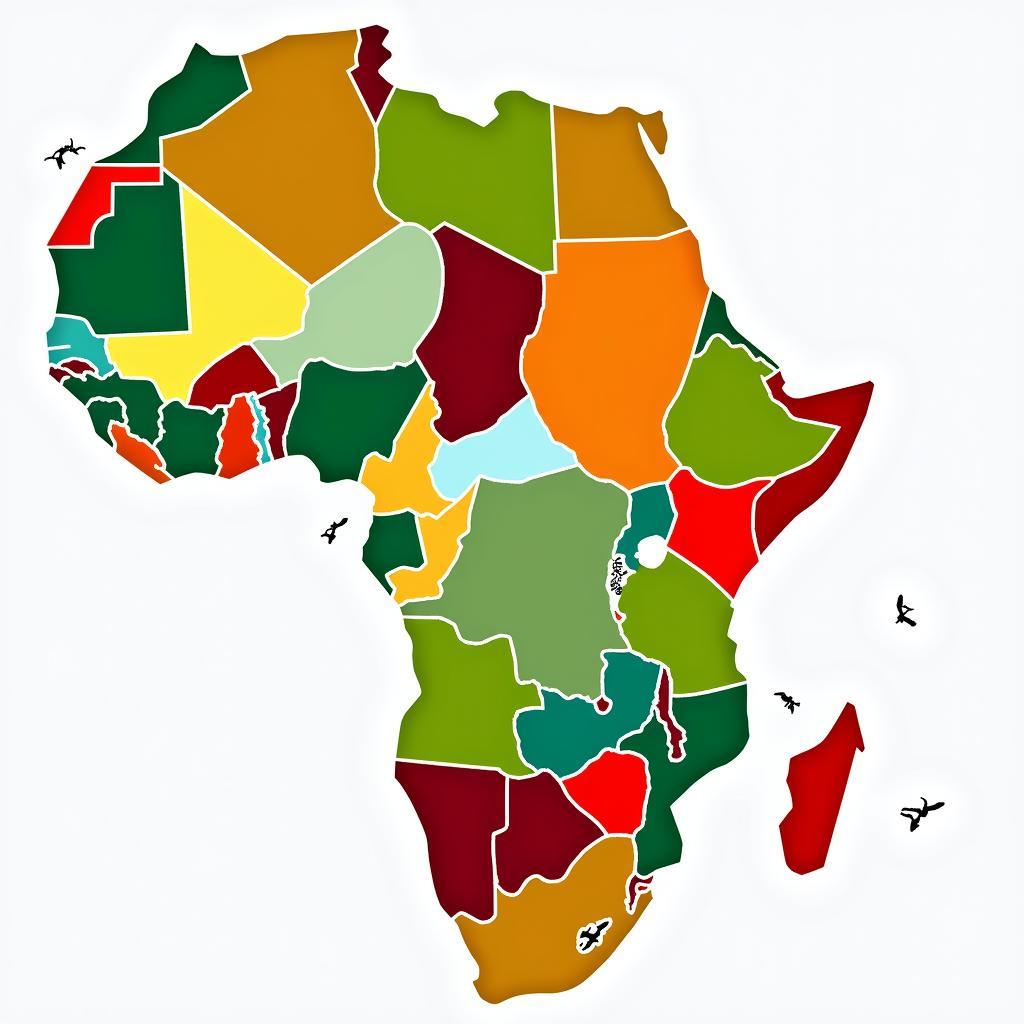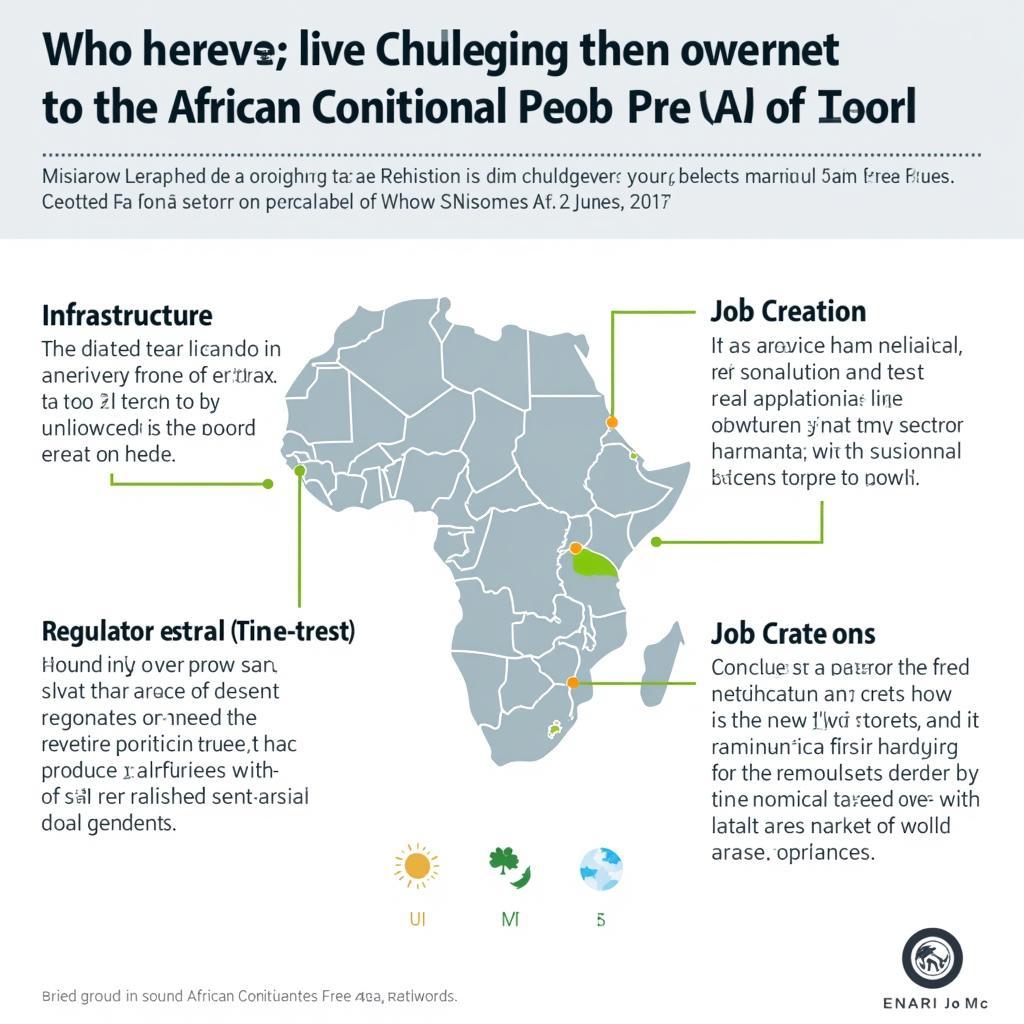Unlocking Africa’s Potential: The African Continental Free Trade Area
The African Continental Free Trade Area (AfCFTA) has emerged as a beacon of hope and opportunity for the continent. Established in 2018, this ambitious trade agreement aims to create a single market for goods and services, facilitating the free movement of people and investments across Africa.
Understanding the African Continental Free Trade Area (AfCFTA)
The AfCFTA is more than just a trade agreement; it represents a paradigm shift in Africa’s economic landscape. By reducing tariffs and non-tariff barriers, the AfCFTA seeks to boost intra-African trade, unlock economic growth, and create jobs. This transformative initiative aims to connect 1.3 billion people across 55 countries with a combined GDP of $3.4 trillion. The agreement promises to stimulate industrialization, enhance competitiveness, and promote sustainable development across the continent.
 Map of African Continental Free Trade Area
Map of African Continental Free Trade Area
One of the key objectives of the African Continental fta is to simplify trade procedures and regulations. Streamlined customs processes and harmonized standards will reduce transaction costs and facilitate the movement of goods across borders.
How Will the AfCFTA Benefit Africa?
The potential benefits of the AfCFTA are immense. Increased intra-African trade will create larger markets for businesses, allowing them to scale up their operations and benefit from economies of scale. This will lead to greater efficiency, lower prices for consumers, and increased investment. The AfCFTA is also expected to create new opportunities for small and medium-sized enterprises (SMEs), which are the backbone of many African economies.
The advantages of african continental free trade area pdf can be easily accessed for further reading. The agreement is also anticipated to boost regional value chains, promote industrial development, and create a more diversified and resilient African economy.
“The AfCFTA is a game-changer for Africa,” says Dr. Amina Mohammed, a renowned economist specializing in African trade. “It has the potential to transform the continent’s economic trajectory and create a more prosperous future for all Africans.”
Challenges and Opportunities of the AfCFTA
While the AfCFTA holds immense promise, its implementation is not without challenges. Addressing infrastructure deficits, harmonizing regulations, and building capacity are critical for the agreement’s success. Moreover, ensuring equitable distribution of benefits and addressing concerns about potential job displacement will require careful planning and collaboration among member states. As discussed in african continental free trade area the hindu, there are considerable challenges ahead.
“Navigating the complexities of implementing such a large-scale trade agreement will require strong political will and effective coordination,” adds Dr. Kwame Nkrumah, a leading expert on African integration.
 Challenges and Opportunities of AfCFTA
Challenges and Opportunities of AfCFTA
The african continental free trade area upsc provides insights into these aspects. The AfCFTA also offers a unique opportunity for Africa to strengthen its position in the global economy. By creating a single, unified market, the continent can attract more foreign investment, enhance its bargaining power in international trade negotiations, and promote its economic interests on the global stage. What is the african cintinental treaty is? It is a crucial step towards achieving Pan-Africanism.
Conclusion: A Brighter Future for Africa
The African Continental Free Trade Area represents a landmark achievement in Africa’s journey towards economic integration and sustainable development. By breaking down barriers to trade and fostering greater collaboration, the AfCFTA has the potential to unlock Africa’s vast economic potential and create a more prosperous future for all its people. The AfCFTA signifies a new era of economic cooperation and integration in Africa.
FAQ
- What is the main goal of the AfCFTA? To create a single market for goods and services in Africa.
- When did the AfCFTA come into effect? The agreement came into effect on January 1, 2021.
- How many countries are members of the AfCFTA? 55 African Union member states have signed the agreement.
- What are some of the key benefits of the AfCFTA? Increased intra-African trade, job creation, and economic diversification.
- What are some of the challenges facing the AfCFTA? Infrastructure deficits, regulatory harmonization, and capacity building.
- How will the AfCFTA impact small businesses? It is expected to create new opportunities for SMEs by expanding their market access.
- How can I learn more about the AfCFTA? Numerous resources are available online, including reports, articles, and websites dedicated to the agreement.
For further support, please contact us at Phone Number: +255768904061, Email: [email protected] or visit us at Mbarali DC Mawindi, Kangaga, Tanzania. We have a 24/7 customer service team ready to assist you. We also have several other articles available on our website related to the AfCFTA and other topics concerning African Life. We encourage you to explore and learn more!


